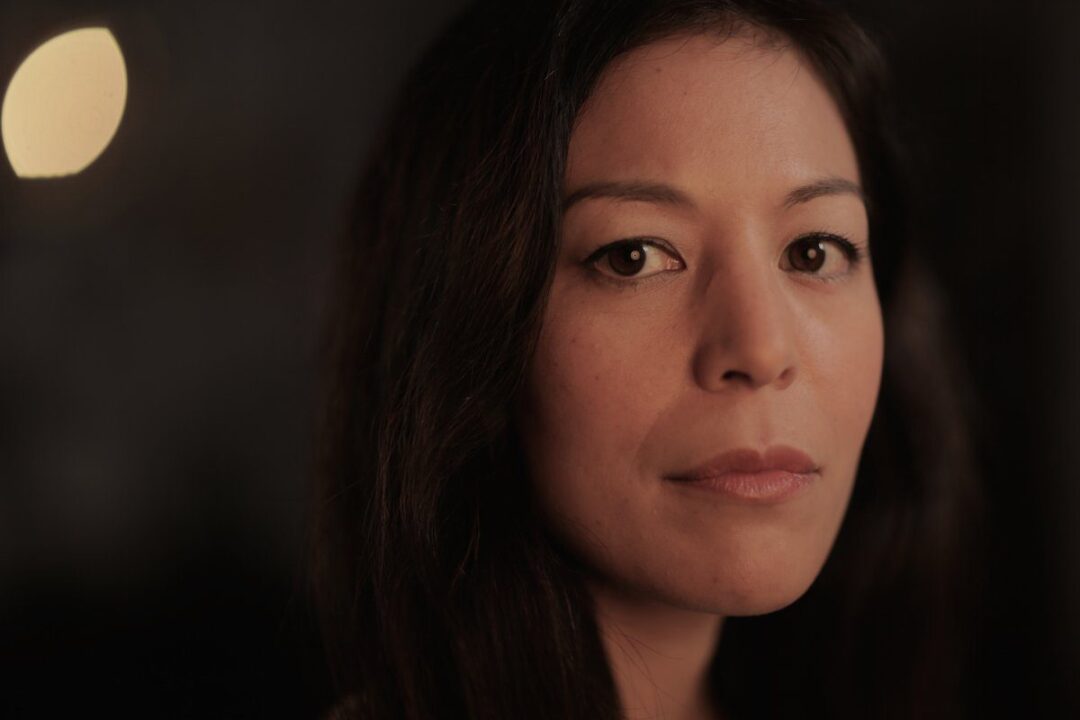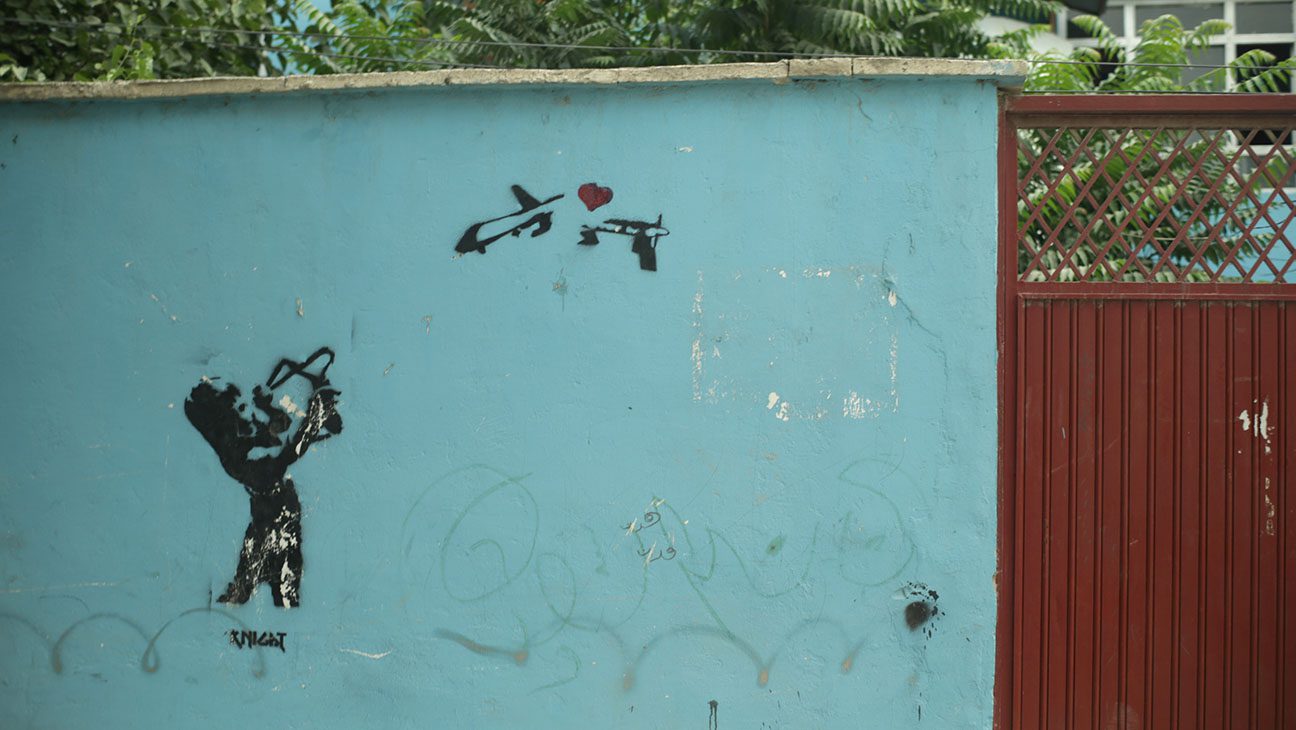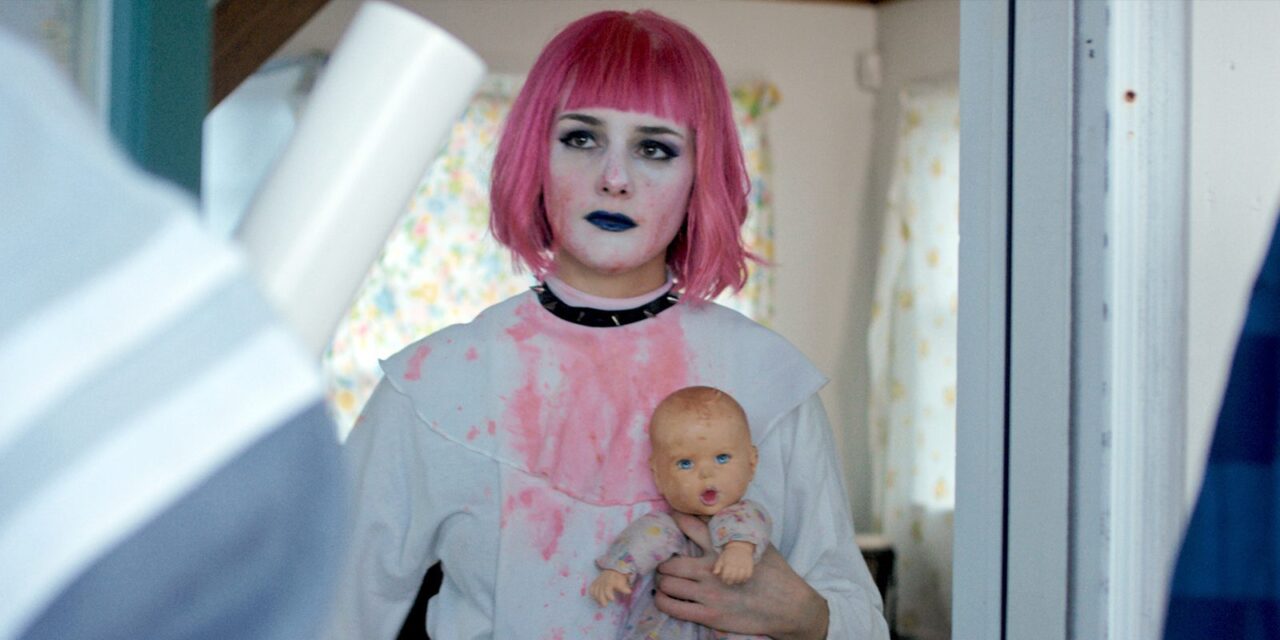Sonia Kennebeck on Risking Her Safety to Create 'National Bird'
Sonia Kennebeck's background as an investigative journalist led her to create one of the year's most unsettling exposés, "National Bird."
Executive produced by legendary filmmaker Wim Wenders and documentarian Errol Morris, her film set out to open our eyes to the formidable truth about the government’s role in drone warfare. In our exclusive interview, Sonia talks to Cinemacy about meeting the film's three whistleblower protagonists for the first time, putting her safety in jeopardy for the sake of the film, and her hopes for change.
What made you want to create a film about this subject?
I wanted to make a film about the drone program but not told by some "expert behind the desk." I really wanted to tell the story of the people directly impacted by the drone war: the people who had top secret clearances who worked in the drone program, people fighting in the war, and the people in the target countries.
What I found out through my research is that the people working in this program are very affected by their role, and then, of course, you rarely see the stories of people in the target countries. I wanted to give the victims and survivors a voice.
The film follows three different people, how did you select your protagonists?
Finding people who worked in the drone program who were willing to speak about their experience was not an easy task because everyone in the film had top secret clearance. They've been in this secret environment for so long, being told not to speak out about it. I found Heather [Linebaugh] first, almost a year before she wrote the Guardian article. I saw a photograph online of this young woman holding up a sheet of paper covering her face, only her eyes were showing, and on the paper, it said "Not everything you hear about the drone program is true. I know what I'm talking about." I started [researching] and eventually, I came across a Facebook profile of Heather and recognized her eyes. I contacted her and asked if we could meet. In our first meeting, she told me that she lost three friends to suicide; it really hasn't been discussed how suicide and PTSD are common issues for people working in the drone program. That was the first story I started to follow.
Then I met Daniel [Ellsberg] at a peace protest and Lisa [Ling] at a veteran's convention. In our first meeting, Lisa told me she traveled to countries like Afghanistan and wanted to continue traveling for the rest of her life to make amends for what she had participated in with the drone program.
"In our first meeting, she told me that she lost three friends to suicide; it really hasn't been discussed how suicide and PTSD are common issues for people working in the drone program."

Was there one story you found personally compelling?
It's difficult because all of the stories were very different. I really see that people connect to these characters in different ways, especially young people. They all seem to really connect to Heather and Daniel. I see people who are typically older are compelled by Lisa's story, she is extremely thoughtful in her analysis and has a sense of the bigger picture. For me personally, I think all three are very moving.
I've been following Heather's story [for so long] and her struggle to get help for PTSD. It's not easy to watch, her being such a young person and the struggle she goes through to get help. What Daniel goes through is also very traumatic.
What was it like filming in Afghanistan?
Lisa was the one who took us to Afghanistan and it was hard to meet the victims, families, and survivors. The people of Afghanistan are incredibly open in sharing their stories, their hopes, and their dreams. They called us their "foreign brother" and asked for peace. I was so incredibly struck by the humanity of the people of Afghanistan. For many people, these [scenes] are the most heart-wrenching part. All in all, it was a very challenging production, I have to say. I had a lot of sleepless nights.
"Whistleblowing, by definition, means that you are exposing fraud, abuse, criminal, and illegal activity. These are all things we need to shed light on to keep our government accountable."

From traveling to Afghanistan to standing by Daniel through his trial, did you ever feel like your safety was in jeopardy?
We all knew there would be a risk in making this film, and I tried to minimize the risk as much as possible. I hired a first amendment lawyer and a whistleblower attorney (who is one of the lead attorneys for Edward Snowden) during the production of the film. We all talked about the risks in advance. To make a film like this in our current environment under the Obama administration, where whistleblowers and journalists are prosecuted and threatened, that was a big concern for us. It had been reported that Obama has prosecuted more whistleblowers under the Espionage Act than all previous administrations combined since 1917.
We did prepare for the worst, hoping it wouldn't happen of course. Daniel was raided in the middle of production, and we decided to keep shooting but you see in the film what impact it has on him. One thing that is very important for people to know is that whistleblowing, by definition, means that you are exposing fraud, abuse, criminal, and illegal activity. These are all things we need to shed light on to keep our government accountable. Especially with a Trump presidency coming up now, I think it's really relevant. We need transparency, but it is becoming more difficult because the threats and risks are higher for whistleblowers and independent filmmakers like myself.
In a perfect world, what do you hope to change, or see the public do, to help fix this problem?
I wanted to bring transparency to the drone program and start a discussion. My background is in investigative journalism and I wanted to do this film because I felt like there was too much secrecy surrounding the program. We're in a time where technology has outpaced our legal framework and rules & regulations. To a certain extent, maybe even our moral standards. I think we need to catch up as a society and get this [unbiased] information to then decide if this is the type of warfare we want.
'National Bird' Review: An Unsettling Exposé of our Government's Role in drone warfare
Our inclination towards human empathy is tapped into, and the result is a strong protective sentiment towards the veterans, and animosity towards the institution that broke them.
Drone warfare. Surveillance and weaponry utilized from unmanned planes controlled by members of the Air Force who remain safely behind desks on our own soil. At first thought, it can seem that in this case, technology has advanced in our favor, and the result is less warfare and fewer casualties. But, as we catch a glimpse of the people closely involved with this system and how they are affected, we begin to not only question, but grow outright disdainful for what the Government is implementing behind the curtain. In "National Bird," director Sonia Kennebeck sets out to uncover what’s really going on with our Government and drone warfare, and the result is unsettling.
Kennebeck sets out to show us the truth about drone warfare through the storylines of three separate, and very distinctive, characters. The first one we meet is Heather: a young woman from a small town in Pennsylvania who is a former drone imagery analyst. For those of you (like me) who can’t easily identify fancy Air Force titles, her job was to watch the drone cameras and try to distinguish what she was seeing - men vs. women and children. We follow Heather as she speaks about what it was like to be behind the button during her time serving, and also how it continues to affect her. Amongst the artistically invasive cinematography and powerful sound mixing the film provides, we then meet Daniel, a Former Signals Intelligence Analyst who participates in Government protests and holds little back when explaining his opposition to drone warfare. Lisa, a Former Technical Sergeant, expresses her fear and sadness of drone surveillance systems after working closely with them as well. It is important to mention that the film was built for the theater, and only the 7.1 surround sound and 50 ft. screens can really give all of the film’s facets justice.
The three stories of the characters begin to build as they all take very different paths: Heather struggles to find acceptance and help to deal with her PTSD, Daniel faces the wrath of the US Government, and Lisa seeks understanding and forgiveness in the last place she expects to find it - Afghanistan. Through these contrasting stories, we not only get to know each veteran in an intimate way, but there is also the unique opportunity for every viewer to find a connection with at least one of the protagonists. Because of this, our inclination towards human empathy is tapped into, and the result is a strong protective sentiment towards the veterans, and animosity towards the institution that broke them.
Although the film does not offer a counter argument to the strong opinion against drone warfare, the emotional appeal of the unfolding storylines is a testament to how desperately the argument against needed to be made. It’s hard to bring up an issue that many people want to ignore, dive deep into the deficiencies of an institution, present it all without offering a solution, and still make a film people want to see. However, "National Bird" proves that this is possible. Kennebeck took on a monster of a tale to tell, and along with it came many obstacles to overcome, but the result is a deeply momentous and captivating hour and a half.
'National Bird' is unrated, 1 hr 32 min. Now playing at Laemmle's Monica Film Center.
'Little Sister' Review: Familial Conflict Gets Darkly Comedic
Everyone watching can recognize some aspect of their own family as the Lunsfords invite us to see their biggest vulnerabilities, and how they are there for each other even when they don’t know how to be.
Zach Clark’s Little Sister holds many classic themes that dance around family and internal conflict, but what sets the film apart are these ideas composed with eccentric, multidimensional characters and suburban unrest. The film offers the audience a family dynamic that, although may look different from the ones we encounter in our own lives, is familiar and almost comforting in the ways the relationships and tensions are played out. Everyone watching can recognize some aspect of their own family as the Lunsfords invite us to see their biggest vulnerabilities, and how they are there for each other even when they don’t know how to be.
Addison Timlin plays Colleen Lunsford, a young, timid aspiring nun with a dark, gothic (and somewhat ironic) past. She has distanced herself from her family but decides to visit home once she finds out her brother Jacob (Keith Poulson) has returned from war and is living under her parents’ roof. We soon learn through nostalgic home videos about the close companionship the siblings share. This is hindered, however, by Jacob’s unwillingness to leave his room or accept any company. Also introduced is the strained relationship between Colleen and her mother, Joan (Ally Sheedy), which brings a familiarity of the particular conflict that comes with many mother-daughter relationships, but is heightened by Sheedy’s somewhat neurotic and emotionally unstable character. Joan brings a strong and unpredictable energy to the scenes she appears in, which serves as a nice compliment to Timlin’s modest and humble character.
The story continues as Colleen attempts to rebuild both relationships after years of distance. Her newfound goodwill and conscience from her time in the convent mixed with her family’s bewilderment as she prays before every meal and speaks of the grace of God provide the film with many subtle comedic moments. This, mixed with the interwoven storylines of her brother and his girlfriend, her parents and their marijuana habit, her eccentric best friend from high school, and her relationship with her mother superior builds a complex composition that defines well-rounded characters and keeps the viewer’s attention. The most volatile conflict - Colleen and Joan - continues to build throughout the 91-minute film until it reaches its climax in a scene filled with deep vulnerabilities and emotion. This adds just the right amount of drama to a film that is otherwise light on emotional expression and brings an even deeper understanding and compassion to the parent-child relationship.
Subtlety is the key word when describing this film. The cinematography is straightforward, the scenery embodies every sleepy small town across America, and the quiet demeanors of the characters produce low energy scenes mixed with impassive humor. But all of these understated facets further point the audience to the bigger picture: incessant family support. There is a deep misunderstanding that each of the family members have for one another’s lifestyle, but they are persistent in still holding a place in each others’ lives. Clark underscores realism with his depiction of family life, and it leads to an offbeat, unpredictable, but all-the-while endearing hour and a half watch. If Little Sister does nothing else for you, it will at the very least leave you with a small inclination to call your mom.
'Little Sister' is not rated. 91 minutes. Opening at Arena Cinemas in Hollywood on Friday, October 28th.



